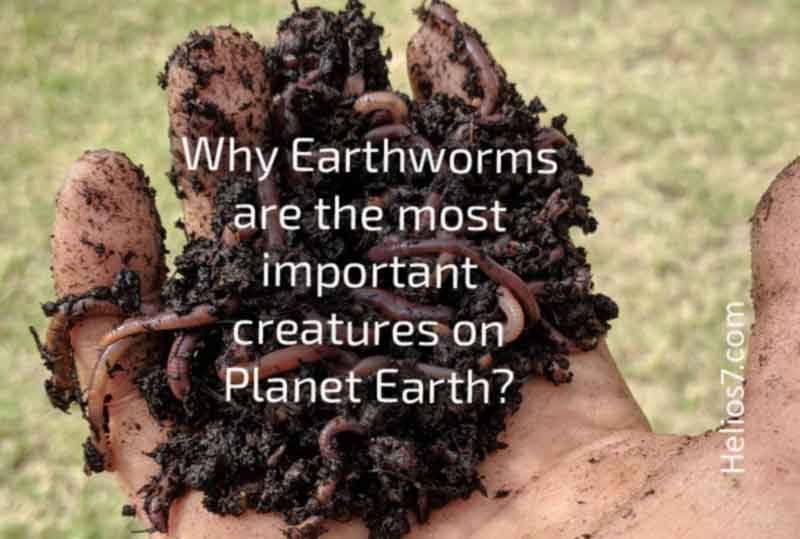
Imagine these little guys as nature’s recyclers. Just like how we sort our garbage to help the environment, earthworms break down organic matter to enrich the soil. They take dead leaves, decaying plants, and even manure, and turn them into nutrient-rich fertilizer. This process not only gives plants the food they need to thrive but also contributes to a healthy ecosystem. So, let’s dive into the fascinating world of earthworms and explore why they matter so much to our planet.
What Exactly Are Earthworms?
Earthworms are elongated, segmented worms that can be found in various habitats around the globe, from lush gardens to rich farmland. They belong to the class Oligochaeta, and some of the most common species include the red wiggler and the nightcrawler. You might be wondering, what sets them apart from other worms? Well, earthworms are designed for life underground. Their bodies are soft and moist, making it easier for them to burrow through the soil.
These little creatures breathe through their skin, needing a moist environment to survive. If you’ve ever noticed earthworms surfacing after a heavy rain, that’s because the soil gets saturated with water, and they need to escape to avoid drowning. So, while they might look harmless, these guys are incredible survivors and play an essential role in soil ecology.
The Role of Earthworms in Soil Health
Here’s the thing: earthworms are like nature’s soil doctors. They have an impressive ability to aerate the soil, which is crucial for healthy plant growth. When earthworms tunnel through the ground, they create tiny channels. These channels allow air, water, and nutrients to flow more easily into the soil. This aeration helps plants’ roots access the oxygen they need, promoting robust growth and improving overall soil structure.
In addition to aeration, earthworms also break down organic matter. As they consume decomposing plant materials, they excrete a nutrient-rich waste called castings. These castings are packed with essential nutrients like nitrogen, phosphorus, and potassium—key ingredients for healthy plant life. In fact, one study showed that earthworm castings can increase crop yield by up to 25%! So, when you’re admiring your flourishing garden, remember the tiny earthworms working tirelessly behind the scenes.
Earthworms and Nutrient Cycling
Nutrient cycling is a natural process that keeps ecosystems in balance, and earthworms are vital players in this cycle. As organic matter like leaves and dead plants decomposes, it releases nutrients back into the soil. Earthworms help speed up this process. Think of them as little composters, breaking down materials more quickly and efficiently.
As they digest this organic matter, earthworms enhance soil fertility and improve its structure. The nutrients they contribute not only support plant growth but also help maintain a diverse range of soil microorganisms. Healthy soil teems with life—from beneficial bacteria to fungi—creating a balanced ecosystem that supports both plants and animals. Without earthworms, this nutrient cycling would be significantly slower, leading to less fertile soil and weaker ecosystems.
Environmental Benefits of Earthworms
Earthworms don’t just help our gardens; they also have a significant impact on the environment. Their presence can lead to better water retention in the soil, which is especially important during dry spells. When the soil has good structure and is rich in nutrients, it can hold onto water more effectively. This means that plants can thrive even in less-than-ideal conditions.
Moreover, earthworms contribute to reducing soil erosion. The tunnels they create help anchor the soil, making it less susceptible to being washed away by rain or blown away by wind. In a world where climate change and extreme weather events are becoming more common, protecting our soil and preventing erosion is crucial. By fostering healthy earthworm populations, we’re taking steps toward a more sustainable environment.
How Earthworms Benefit Agriculture
Farmers have long recognized the value of earthworms in agriculture. They can improve soil health, enhance crop yield, and reduce the need for chemical fertilizers. The nutrient-rich castings produced by earthworms can serve as an organic fertilizer that boosts plant growth without the harmful side effects associated with synthetic options.
Some farmers even practice a method called vermicomposting, which involves raising earthworms specifically for composting organic waste. This can be a great way to recycle kitchen scraps while producing high-quality fertilizer. With the rising interest in sustainable agriculture and organic farming, understanding and encouraging earthworm activity in the soil is becoming more critical than ever.
How to Attract and Care for Earthworms
If you’re eager to boost your garden’s health, attracting earthworms is a fantastic start. Here are a few simple tips to encourage their presence:
- Add organic matter: Incorporate compost, leaf litter, or well-rotted manure into your garden. This creates a rich food source for earthworms.
- Avoid chemicals: Pesticides and synthetic fertilizers can harm earthworm populations. Go for natural alternatives whenever possible.
- Moisten the soil: Earthworms need a damp environment to thrive, so ensure your garden stays adequately watered—without excessive flooding.
You might also want to create a worm-friendly habitat. Simple practices like mulching, planting cover crops, or rotating what you grow can provide a welcoming environment for these creatures. Think of your garden as a small ecosystem where everything works together.
The Future of Earthworms and Biodiversity
As awareness of earthworm importance increases, so does the need to protect their habitats. Urban development, pollution, and intensive agricultural practices can threaten these crucial creatures. By advocating for sustainable farming and responsible gardening practices, we can help maintain healthy earthworm populations for future generations.
Moreover, earthworms can play a crucial role in restoring degraded lands. By fostering their presence in eroded or depleted areas, we can help revitalize ecosystems. As part of our efforts to combat biodiversity loss, recognizing the value of these creatures is essential.
In a nutshell, earthworms are more than just squiggly beings in the soil. They are vital to our ecosystem, promoting soil health, nutrient cycling, and environmental sustainability. By appreciating their role and taking steps to protect them, we contribute to a more balanced and thriving planet. So, next time you dig in the garden and encounter one of these remarkable creatures, remember just how much they do for us and the world we live in.

